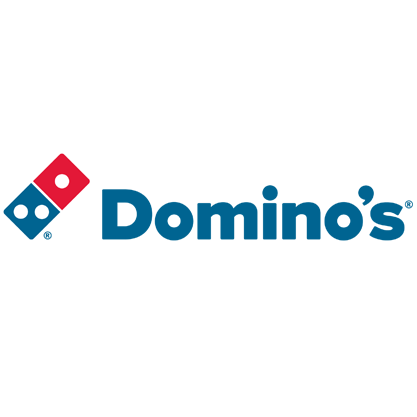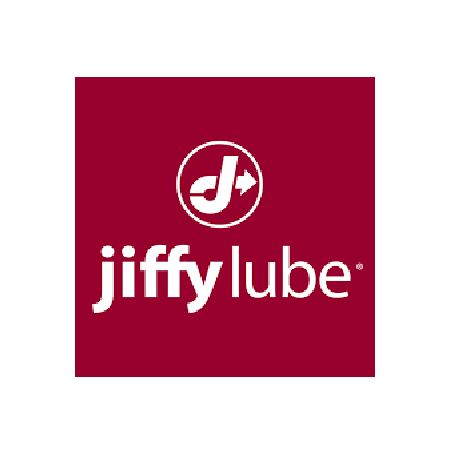What is the International Franchise Association?
The International Franchise Association (IFA) is a trade group that focuses on government and public relations efforts for the franchise industry.

Table of Contents:
The International Franchise Association (IFA) is a trade group that focuses on government and public relations efforts for the franchise industry. The association publishes data on franchise activity through a partnership with the U.S. Census Bureau. It have litigated on behalf of its members in cases that have reached the U.S. Supreme Court.
International Franchise Association’s History
The IFA started in 1960 as a meeting between a small group of entrepreneurs to discuss the state of franchising. Due to the Cold War, the world was changing at a rapid pace at the time, and the group was worried this would affect their businesses. Dunkin’ Donuts Founder Bill Rosenberg demanded they start an association to deal with political and legislative matters. It was then and there the IFA and the IFA Convention were born.
Originally based in Chicago, the IFA decided to pack up and move to Washington, D.C. in 1968. IFA President Al Lapin, Jr. brought on Philip Zeidman of Brownstein, Zeidman, and Schomer to help serve as counsel for legislative matters. Lapin believed this was the first step for the IFA to become more involved in legislative matters in Washington.
The IFA now called Washington, D.C. it’s home, but it still suffered some growing pains. The IFA was feeling the effects of the social, political, and economic changes the 1970s presented. Sonic Board Member Robert Rosenberg, who served as Dunkin’ Donuts CEO from 1963 to 1998, said the ‘70s were the IFA’s “adolescent” phase.
It still exists in D.C. at 1900 K Street.
Leadership

Charles E. Chase – FirstService Brands – IFA Chair

David Humphrey – ECP-PF Holdings Group, Inc. – Vice Chair

Mary Kennedy Thompson, CFE – Neighborly – Second Vice Chair

Catherine Monson, CFE – Propelled Brands – Immediate Past

William G. Hall, CFE – Dairy Queen Franchisee – Treasurer

Stuart Hershman – DLA Piper LLP (US) – Secretary

Matthew Patinkin – Auntie Anne’s Pretzels and Cinnabon – Franchisee Forum Chair

Graham Weihmiller, CFE – BNI Global – Franchisor Forum Chair

Edith Wiseman, CFE – FRANData Supplier – Forum Chair
IFA’s Mission
The International Franchise Association protects, enhances, and promotes franchising” and their vision is to be “the preeminent voice and acknowledged leader for franchising worldwide.
TRUST, TRUTH, AND HONESTY: Foundations of Franchising
“Every franchise relationship is founded on the mutual commitment of both parties to fulfill their obligations under the franchise agreement. Each party will fulfill its obligations. Will act consistently with the interests of the brand. And will not act so as to harm the brand and system” says the IFA. Because “this willing interdependence between franchisors and franchisees, and the trust and honesty upon which it is founded, has made franchising a worldwide success as a strategy for business growth”.
The IFA believes that honesty leads to openness and truthfulness.
“The public image and reputation of the franchise system are one of its most valuable and enduring assets”. That is because a positive image and reputation creates value for franchisors and franchisees. And attracts investment in existing and new outlets from franchisees and from new franchise operators. It also helps capture additional market share and enhances consumer loyalty and satisfaction.
MUTUAL RESPECT AND REWARD: The IFA believes in winning together, as a team
The success of franchise systems depends upon both franchisors and franchisees. They must feel like the system is helping them attain their goals. The IFA’s members believe that franchisors cannot be successful unless their franchisees are also successful. And conversely, that franchisees will not succeed unless their franchisor is also successful.
IFA’s members are committed to “showing respect and consideration for each other and to those with whom they do business.” For them, mutual respect recognizes and honors extraordinary achievement and exemplary commitment to the franchising system. IFA’s members believe that franchisors and franchisees share the responsibility for improving their franchise system in a manner that rewards both franchisors and franchisees.
OPEN AND FREQUENT COMMUNICATION: Successful franchise systems thrive on it
IFA’s members believe that franchising is a unique form of the business relationship. They believe that there doesn’t exist a business relationship that embodies such a significant degree of mutual interdependence anywhere else. IFA’s members believe that to be successful, this relationship requires continual and effective communication between franchisees and franchisors.
Members
IFA claims a membership of 1,400 brands and states that its members represent 2.5% of the U.S. GDP.
Let’s look at some of the most popular franchises that are members of the International Franchise Association:
Little Caesars
Little Caesars is an American multinational pizza chain. It is the third-largest chain in the US after Domino’s and Pizza Hut. Little Caesar’s has 4100+ locations across the USA. Internationally, Little Caesars has locations in Asia, the Middle East, Canada, Latin America, and the Caribbean. Based in Detroit, MI, Ilitch Holdings owns the pizza chain.
The chain was founded in 1959, by Mike Ilitch and his wife Marian Ilitch. The first location was in a strip mall in Garden City, Michigan, a suburb of Detroit, and named “Little Caesar’s Pizza Treat”. The first franchised location opened in 1962 in Warren, MI. The company is well-known for its catchphrase “Pizza! Pizza!”, introduced in 1979. It alludes to two pizzas at Little Caesars being offered for the comparable price of a single pizza from competitors. Since the old days, Little Caesars’ business model has shifted to focus more on carryout. In 1998, Little Caesars filled what was the largest pizza order of the time, 13,386 pizzas for the VF Corporation of Greensboro, NC.
It is led by David Scrivano in the capacity of President and CEO.

The Initial Investment on Little Caesars
The estimated total investment necessary to begin the operation of a Little Caesars Franchise ranges from $378,700 to $1,695,500.
Based on the median sales estimated for Little Caesars franchise locations, at an average of a 15% profit margin it will take around 9.75 years to recoup your investment. This is longer than other franchise opportunities. You may not get a 15% profit margin which would elongate getting a return on your investment.
When you go to sell a Little Caesars franchise based on the median multiple of .59 and 2021 AUV of $940,000, it would sell for $554,600. This is significantly lower than the midpoint investment of $1,037,000.
However, as an owner of multiple Little Caesars franchised locations, you do have the ability to minimize loss. Pizzeria owners with over $5 million in sales have a median multiple of 0.86. So, if you had 10 Little Caesars’ franchises, amounting to $9,400,000 in sales, selling your multiunit franchise system would amount to $8,084,000. This is also not going to recover your initial investment of $10,370,000. This might be a big reason for the decline of Little Caesars’ franchised locations – it just isn’t viable anymore.
Anytime Fitness
Anytime Fitness is a Minnesota-based fitness chain that offers access to one-on-one, small, and large group training in exchange for a membership fee.
The brand is the fourth largest fitness brand in the United States. Currently has over 2,300 locations across the United States. It has over 4,000 locations worldwide in over 50 countries. This makes it one of the largest names in the fitness industry. Prospective franchisees will be happy to hear that Anytime Fitness operates under the franchising model. Meaning nearly all of their centers are franchised.
Anytime Fitness has two types of fitness centers. Regular Anytime Fitness centers are typically between 4,000 and 6,000 square feet. Anytime Fitness Express centers are typically between 1,500 and 4,000 square feet. These centers are located in towns with fewer than 7,000 people.
Anytime Fitness’s Costs
The cost of an Anytime Fitness franchise is estimated to be between $381,575 and $783,897 for standard locations and $290,746 to $584,441 for Fitness Express locations.
A 15% profit margin would yield estimated annual profits of $57,744. This means it would take just over 12 years to recoup your investment in a standard center.
Based solely on the Franchise Disclosure Document, owning an Anytime Fitness center may not be the best investment. Although it’s a large and well-established company, the time frame to recover the initial investment is 10 to 20 years.

Jiffy Lube
Jiffy Lube is an automotive oil change company that was founded in 1971 but has been a subsidiary of Shell since 2002. It is currently led by W James Hindman, the CEO. As of 2021, they have over 2000 stores in operation.
The estimated total investment necessary to begin the operation of a Jiffy Lube Franchise ranges from $232,000 to $442,650.
Based on the median sales provided by Jiffy Lube’s franchise locations, at the industry standard of a 5% profit margin it will take around 14 years to recoup your investment. This is longer than other franchise opportunities. You may not get a 5% profit margin which would elongate getting a return on your investment.

Jiffy Lube Midpoint investment
When you go to sell a Jiffy Lube franchise based on the median multiple of 49 and net sales averaging between 2020 and 2021 of $511,434, it will sell for $250,602. This is lower than the midpoint investment of $337,325.
Looking at the businesses listed for sale on BizBuySell, however, it is seen that the multiple is actually closer to 1.1. Based on the new multiple, when you go to sell a Jiffy Lube franchise with net sales averaging between 2020 and 2021 of $511,434, it will sell for $562,577. This is higher than the midpoint investment of $337,325.
Jiffy Lube offers an opportunity to be a part of an industry that has long stood its ground. Their permanence in the market is due to the need for automobiles for the majority of the population. However, with the growing popularity of electric cars, it is looking at how to adapt to the oil change business.
How does the failure rate of Featured IFA Franchises compare to the industry and total franchise failure rate?
Let’s look at a few of the franchises featured on IFA and see how their failure rates compare. The Failure Rate represents franchise unit terminations, non-renewals and franchises that ceased operations for other reasons in a given year relative to the total number of franchise units. A lower closure rate, overall terminations, and non-renewals indicate a more stable franchise system. The Franchise For Sale represents how many franchised locations are for sale in a given system.
Alphagraphics
Alphagraphics is a printing company offering solutions in printing, marketing communications, and document creation and management. As an AlphaGraphics franchisee, you will establish and operate a business that offers customized print and marketing solutions to businesses using data-driven, multi-channel communications that may require a blend of design, print, web, large format, mobile, and social media services. Its 3-year failure rate is 13% while the all franchises median failure rate is 11%. The 3-year franchise for sale rate is 10% compared to the all franchises median of 6%.
Corvus Janitorial
Corvus Janitorial is a company providing cleaning and janitorial services. Its 3-year failure rate is 37% while the all franchises median failure rate is 11%. The 3-year franchise for sale rate is 0% compared to the all franchises median of 6%.
Goliathtech
Goliathtech installs helical screw signage in multiple industries and locations. Its 3-year failure rate is 24% while the all franchises median failure rate is 11%. The 3-year franchise for sale rate is 6% compared to the all franchises median of 6%.
Home Instead
Home Instead provides at-home, nonmedical care for seniors. Home Instead is based in Omaha, NE. Its 3-year failure rate is 3% while the all franchises median failure rate is 11%. The 3-year franchise for sale rate is 15% compared to the all franchises median of 6%.
NerdsToGo
NerdsToGo locations provide solutions in computer and technology support. NerdsToGo franchises offer a wide variety of computer technology services and products primarily to residential computer users and small and medium-sized businesses. Technicians based in “NerdVans” serve customers at their residences or place of business. Its 3-year failure rate is 23% while the all franchises median failure rate is 11%. The 3-year franchise for sale rate is 6% compared to the all franchises median of 6%.
PuroClean
PuroClean provides commercial and residential property damage recovery. The company provides: (a) drying, remediation, mitigation, and Cleaning services along with structure repair on property-casualty losses and related forms of property damage; and (b) purification, remediation, mitigation, and Cleaning of HVAC systems, indoor air, structures, real property, and personal property whether or not damaged by a casualty loss. Its 3-year failure rate is 14% while the all franchises median failure rate is 11%. The 3-year franchise for sale rate is 4% compared to the all franchises median of 6%.
Snap-On
Snap-On offers a license to operate a franchised mobile store selling high-quality repair and diagnostic tools and equipment. Snap-on manufactures and/or distributes these tools and equipment to professional mechanics and other tool users throughout the United States. Its 3-year failure rate is 20% while the all franchises median failure rate is 11%. The 3-year franchise for sale rate is 12% compared to the all franchises median of 6%.
Big O Tires
Big O Tires, LLC, a Nevada limited liability company offers franchises for the operation of retail stores selling and servicing tires and related automotive products. Big O Tires is based in Palm Beach Gardens, FL. Its 3-year failure rate is 6% while the all franchises median failure rate is 11%. The 3-year franchise for sale rate is 15% compared to the all franchises median of 6%.
Bin There Dump That
Bin There Dump That provides waste removal and disposal services, and other related services and products. Its 3-year failure rate is 2% while the all franchises median failure rate is 11%. The 3-year franchise for sale rate is 7% compared to the all franchises median of 6%.
British Swim School
British Swim School is the leader in “Learn to Swim” programs. It was revolutionary in developing a survival program that enables the very young to survive an accident in the water. Its gentle fun program makes it the nation’s leader and preferred choice for all parents. Its 3-year failure rate is 11% while the all franchises median failure rate is 11%. The 3-year franchise for sale rate is 4% compared to the all franchises median of 6%.
Some of the featured franchises have a higher failure rate than the all franchises median rate but not all.
Franchise systems that pay the big bucks to advertise might have a higher failure rate but we need to analyze a bigger set than ~10 franchises.
Joint Employer Initiatives
The IFA is promoting a platform to make “a clear joint employer standard that makes clear businesses are not liable for other businesses they do not control”. They are anti-unionizing and promote an anti-union agenda on the pretext of being pro-small-business.
The IFA’s issue is with the National Labor Relations Board’s 2015 ruling that franchisors – the national firms – can be held responsible for actions taken by the small businesses that use their brands. They claim that this “puts franchisors at risk of being sued for things they never did and had no power to stop”.
The Association believes that this will kill or at least reduce trust in franchising. And opposes that ruling and the Obama administration’s “joint employer” laws.
Minimum Wage Initiatives
The Association opposes the increase of the minimum wage. They say that small businesses do not support the passage of the Raise The Wage Act, a piece of federal legislation that would have made changes to the minimum wage. The IFS believes that “more than doubling the federal minimum wage at a time when the over 700,000 local franchise small businesses in this country are still recovering from the pandemic will be counterproductive at best and devastating at worst.”
Matt Haller, IFA Senior Vice President of Government Relations and Public Affairs, noted that “these small business owners and advocates represent Main Street’s voice. Put simply, they make a common-sense point that making it more costly to hire workers will make it harder for businesses to hire workers, particularly at a time when their businesses are already struggling.”
As such, the IFA is in opposition to raising wages citing the impact on small businesses as the reason.
Initiatives to preserve the FTC Franchise Rule
The International Franchise Association (IFA) is leading 16 business groups in encouraging members of Congress and the Federal Trade Commission to retain the FTC’s Franchise Rule, which is reviewed every 10 years. The FTC Franchise Rule, the primary federal regulation for the U.S. franchise industry, requires franchisors to supply potential franchisees with essential information that helps them decide whether to buy a particular franchise.
Michael Layman, senior vice president of government relations and public affairs for the IFA, underscored the current importance of the FTC Franchise Rule. “During the economic recovery, there has never been a better time for entrepreneurs and workers to be in franchising. The franchise sector is growing faster than the rest of the economy, franchisee satisfaction has never been higher, and franchise workers enjoy greater advancement opportunities and higher wages than non-franchise small business workers”.















